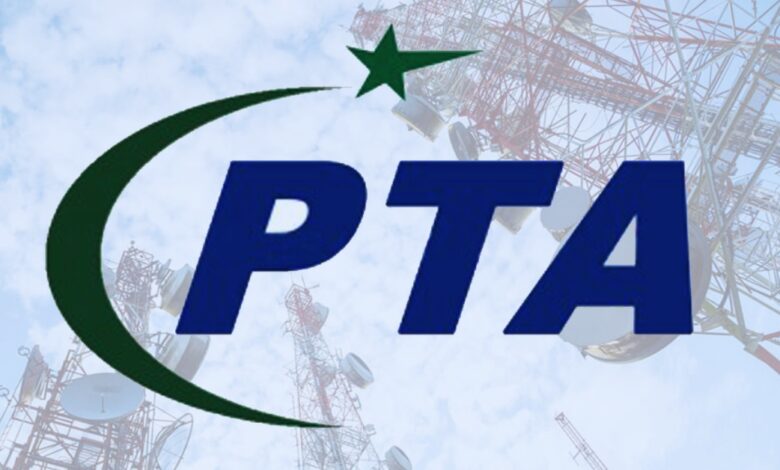
Will PTA Block All Unregistered VPNs?
There is a growing misconception among the public that the Pakistan Telecommunication Authority (PTA) might block all Virtual Private Network (VPN) traffic in the country. This worry has been stirred by the PTA’s recent push for a registration process for VPN users, leading many to fear that unregistered VPNs could soon be completely blocked. However, the situation is more complicated than these concerns suggest.
VPNs, or Virtual Private Networks, are important tools that help people secure their internet connections, protect their privacy, and access information freely, especially in countries with internet restrictions like Pakistan. VPNs allow individuals and businesses to communicate safely and without interruptions.
Although the PTA has introduced a registration requirement for VPNs, the notion that the authority can block all unregistered VPNs is largely based on misunderstanding. The PTA’s goal is to manage and monitor VPN usage, not to entirely block access for those using unregistered services.
The Pakistan Telecommunication Authority (PTA) has some tools to control and monitor internet traffic, including VPNs. They use methods like blocking specific internet ports, inspecting data packets, and blacklisting known VPN server IP addresses. However, these methods have their limits and are not always very effective. Many people worry that unregistered VPNs might be completely blocked, but these fears do not fully consider the limitations of these technologies.
Shahzad Arshad, Chairman of the Wireless Internet Service Providers Association of Pakistan (WISPAP), explains that while people believe any VPN not registered with the PTA will be blocked, this is an oversimplification. The PTA can try to manage VPN traffic, but it is almost impossible to block every unregistered VPN. VPN technology is always changing, with new methods and encryption techniques, making it hard for any authority to keep up.
Around the world, even countries that heavily control internet access struggle to fully block VPN usage. For example, in the United Arab Emirates and Saudi Arabia, there are strict penalties for using unauthorized VPNs, but people still use them to access information freely. In China, despite the Great Firewall and advanced blocking techniques, users find ways to get around restrictions by using stealth VPNs or switching to new servers.
In Pakistan, the PTA’s recent push for VPN registration has led many to believe that unregistered VPNs will be banned completely. However, Shahzad Arshad points out that even if the PTA blocks known unregistered VPN servers, new ones will quickly appear. This ongoing battle between authorities and VPN users is something no authority has ever fully won. The concern that all VPNs need to be registered to function is a misunderstanding of how both technology and regulations work.
It is also important to remember that VPNs are not just used to bypass internet censorship. They are crucial for businesses, government agencies, and financial institutions to keep their communications secure and protect sensitive information. Blocking unregistered VPNs could unintentionally affect these legitimate uses, harming Pakistan’s digital economy and disrupting business activities.
The fear about the PTA’s registration policy is based on an incomplete understanding of VPN technology and regulatory challenges. While the PTA can take steps to control VPN usage, a complete ban on unregistered VPNs is neither practical nor enforceable. As long as people want privacy and unrestricted internet access, VPNs will continue to adapt and find ways to stay ahead of regulatory efforts.
To clear up public confusion, Shahzad Arshad suggests that regulatory bodies should explain their policies more clearly and set realistic expectations. He emphasizes that the PTA’s registration process is meant to create structure and clarity, not to completely block all VPNs. People should understand that VPN usage is constantly evolving and that the goal is not to eliminate all unregistered VPNs but to manage them more effectively.
In conclusion, the belief that the Pakistan Telecommunication Authority (PTA) could completely block all non-registered VPNs is more of a misconception than a reality. While the PTA’s registration process may help them monitor VPN use better, the technology behind VPNs is designed to adapt and change. This makes it very difficult to completely block all unregistered VPNs.
Rather than aiming for an impossible goal, it is more practical to find a balanced approach that considers both security needs and people’s right to privacy. This balance is crucial as Pakistan works to manage its digital space effectively.
As Pakistan faces the challenges of regulating the internet, it’s important to understand what the PTA’s regulations can and cannot do. Knowing these limits will help people have a clearer and more realistic conversation about internet freedom and security in the country.
Meta to Boost Pakistan’s Internet Speed with New Undersea Cable






